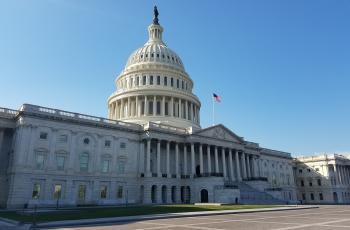Insurance and Access to Care News - 6/1/2021
With this series we will bring you the latest news in insurance and access to care. This week we cover the ACA special enrollment period, Medicaid growth and expansion, and disparities in diabetes care.
For more news in diabetes advocacy and policy, check out our compiled news updates here.
ACA insurance in California is “too cheap to ignore”
The American Rescue Plan (ARP) has lowered premiums for people who get their coverage through the Affordable Care Act (ACA). As a result, California’s ACA exchange, Covered California, estimates the ARP will reduce its customers’ monthly premiums by an average of $180 per household. Additionally, in 2019, California provided state-funded tax credits, which provided further assistance to more people. The combined benefits could save people thousands of dollars.
Why it matters: 1.5 million Californians get their coverage through Covered California. In addition, 2.5 million Californian adults have diagnosed diabetes. Making Covered California more affordable will increase access to diabetes treatment for many more Californians.
What you can do: If you are a resident of California and want to find out if you qualify for federal assistance, go to www.coveredca.com.
Special enrollment period makes ACA enrollment more accessible and affordable
The Centers for Medicare and Medicaid Services (CMS) finalized its second update to the annual benefit and payment parameters rule. The rule makes it easier for people to sign up for a special enrollment period (SEP) to get coverage outside of open enrollment. In addition, the CMS is lowering consumers’ maximum out-of-pocket costs by $400 for 2022. Costs will be limited to $8,700 for individuals and $17,400 for plans with multiple people.
Why it matters: Medicaid enrollment has significantly increased throughout the pandemic. With these updates to CMS, more people will be able to get access to Medicare and Medicaid during a time when so many people have lost their health care coverage. This is especially beneficial for communities hardest hit by COVID-19 who are in need of affordable health care.
Medicaid enrollment increased by 5M during pandemic
A JAMA study found that Medicaid enrollment grew by about 5 million people from March through September 2020. Notably, enrollment growth was greater in states with smaller changes in unemployment in 2020. The study hypothesized that Medicaid growth could be the result of reduced work hours making more people eligible. Another reason for the enrollment increase could be a greater focus on healthcare during the pandemic.
Why it matters: The COVID-19 pandemic has brought to light the importance of accessible healthcare coverage. Most people have private coverage through their employer, yet millions lost health insurance over the past year. Medicaid expansion has also led to greater enrollment, suggesting a greater need for affordable health care.
Biden announces 1 million have enrolled in ACA special enrollment period
President Biden announced earlier this month that 1 million Americans have signed up for Affordable Care Act (ACA) health coverage from February 15 through April 30. The Biden Administration opened the special enrollment period as a result of the pandemic to allow people who needed health insurance to have extra time to sign up. The period will last until August 15 and the number of enrollees is expected to grow.
Why it matters: The ACA covered 1.9 million people with diabetes in 2019. Since its enactment, the ACA has proven to help people with diabetes get the treatment they need. The ACA has provided health coverage for many people who have lost their employer-based plans due to the pandemic.
What you can do: You can see if you qualify and sign up here.
Efforts to expand Medicaid in Missouri fail despite voter approval
In the fall of 2020, Missouri voters approved a constitutional amendment expanding Medicaid coverage in their state. Missouri Governor Mike Parson said that the state government will not pursue Medicaid expansion after the state’s General Assembly refused to fund it. State lawmakers stated that Missouri cannot afford to pursue expansion.
Why it matters: There are currently only 12 states that have not expanded their Medicaid programs. Medicaid expansion in Missouri would cover 275,000 additional Missourians out of the approximately 550,000 uninsured individuals. The Missouri State government’s decision also comes after the American Rescue Plan promised financial incentives for states to expand Medicaid. Medicaid expansion has proven to improve access to diabetes medications and overall enhance care.
What's next: Three people who would be eligible for Medicaid coverage have filed a lawsuit to require the state to expand its Medicaid program. The lawsuit focuses on the fact that Medicaid expansion was supported by 53% of Missouri voters last August. The trial will be on June 18th in Cole County.
Only 1 in 3 US adults with diabetes receive ADA-recommended care
New research has found that in 2017-2018, only one in three US adults with diabetes received five basic elements of care recommended by the American Diabetes Association (ADA). The basic elements include A1c testing, foot and eye exams, and cholesterol testing.
Why it matters: Providing affordable health care coverage can help ensure people with diabetes get the care they need. High costs and a lack of diabetes education serve as barriers to care for people with diabetes. Having access to reliable and easily understandable diabetes information can help people live healthier lives. Without recommended care, people with diabetes may experience more severe complications that can hurt their long term health
Diabetes is under-treated in low- and middle-income countries
Nearly half a billion people around the world have diabetes, but most are not getting adequate care that would allow them to live healthy lives. Only 1 in 10 people with diabetes in the 55 low- and middle-income countries studied receive the type of care that’s been proven to reduce diabetes complications. Additionally, many people don’t even know they have diabetes.
Why it matters: Too many people in low- and middle-income countries cannot afford quality diabetes care. Without adequate care, people with diabetes may experience severe complications that can have harmful effects on their long term health. These findings suggest a need to provide affordable and globally accessible diabetes treatment.


